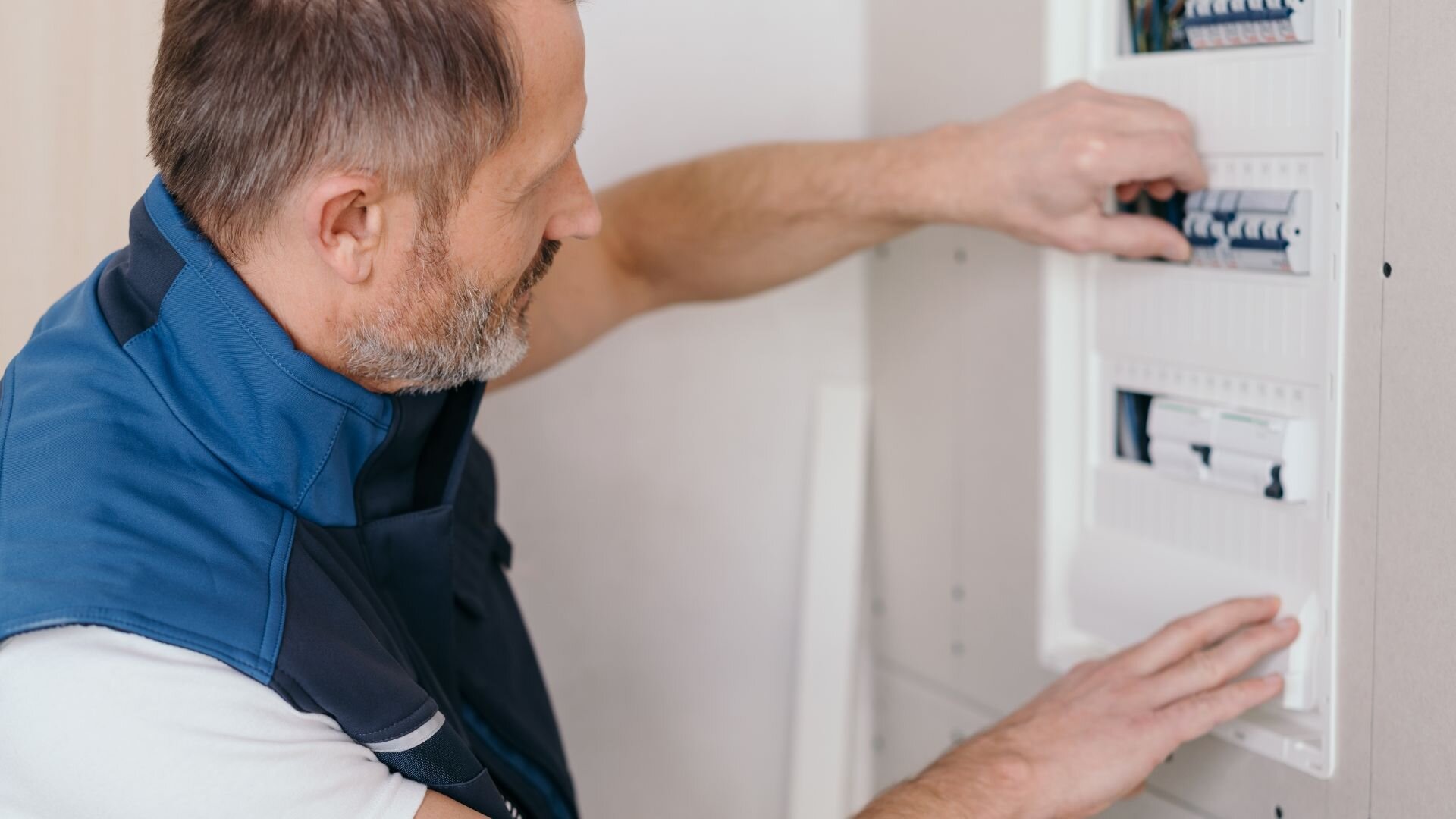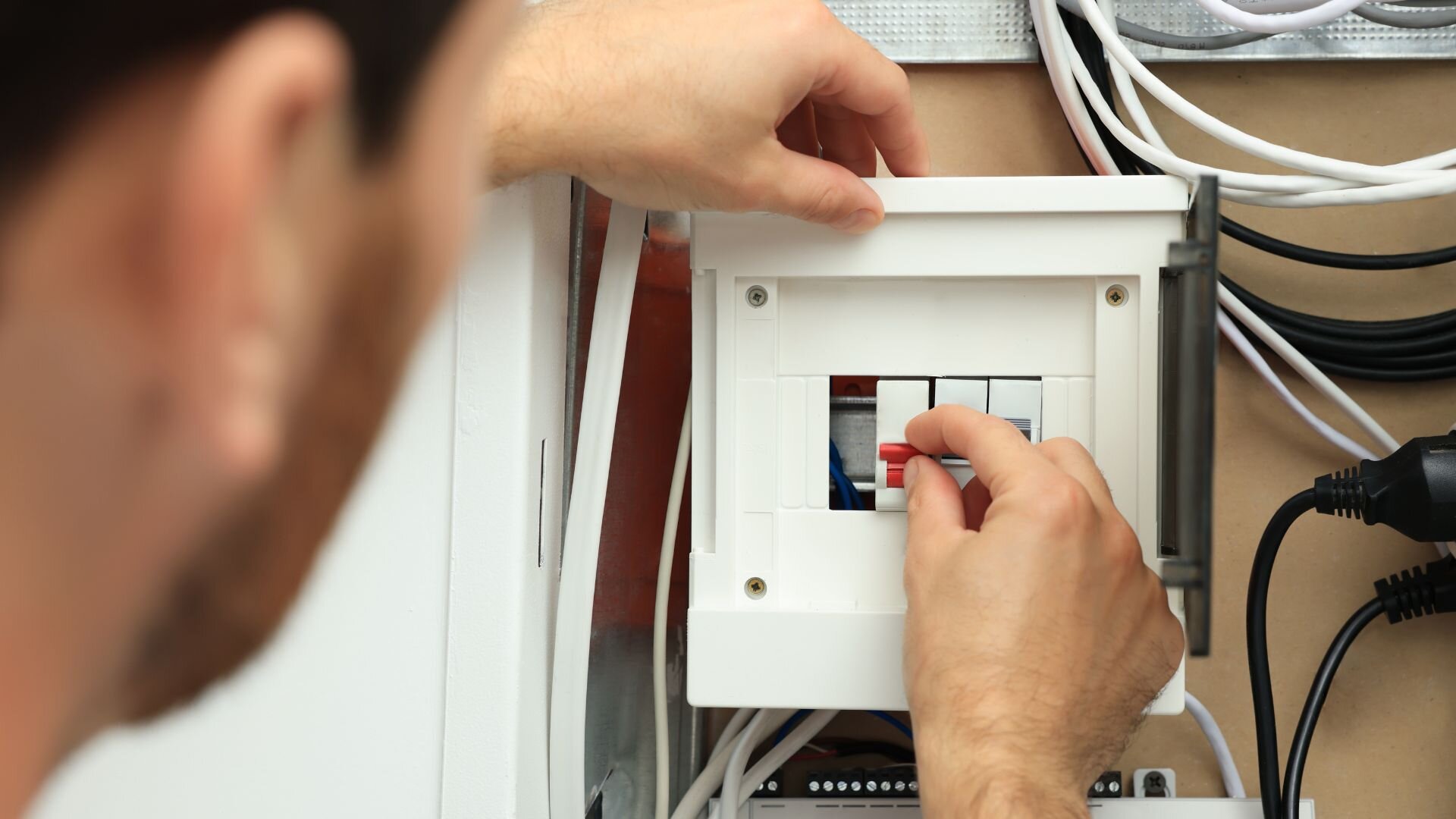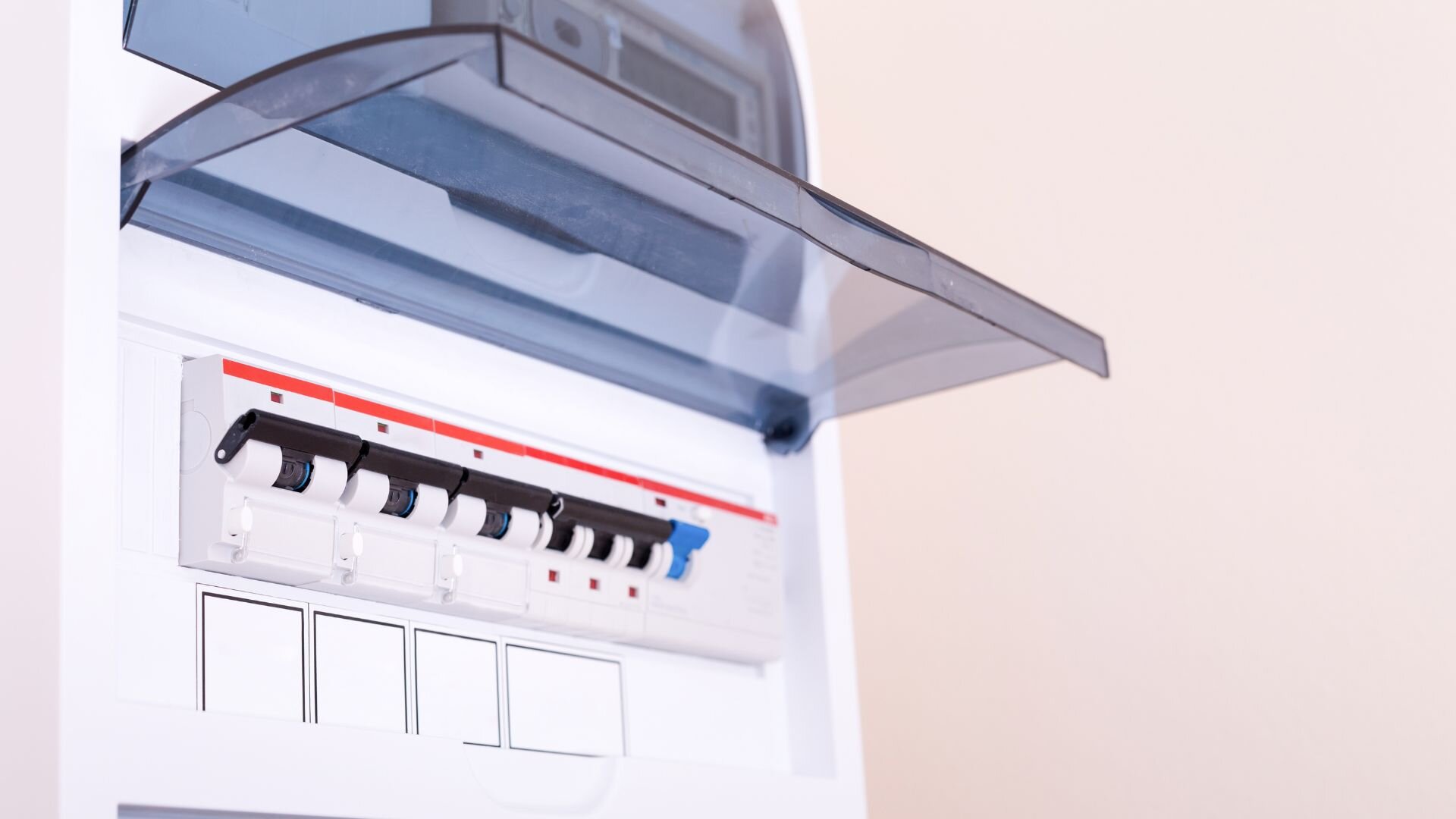Circuit breakers play a vital role in keeping your home’s electrical system safe and operational. These devices are like vigilant protectors, continuously checking the electricity flow through your wires. They spring into action by tripping and halting the power when unusual surges or overloads occur, protecting the circuit.
At Enersol, our Residential Electrician Gold Coast - This swift action is crucial for averting electrical fires, safeguarding your gadgets, and maintaining your property’s safety. But, do keep in mind, circuit breakers aren’t perfect. They can develop faults over time, affecting their performance.
In this article, we’ll look into the common signs that a circuit breaker might be failing and how you can tackle these issues. Learn more about residential wiring guide. So, let’s get started!
Demystifying Circuit Breakers: Your Home’s Electrical Protectors
Circuit breakers are essential components of your home’s electrical system, designed to safeguard against electrical hazards. When an electrical current exceeds the designated amperage for a particular circuit, the breaker trips, interrupting the flow of electricity and preventing potential fires or damage to appliances. However, it’s essential to know if a house circuit breaker is bad, as a faulty breaker can compromise the safety of your home’s electrical system.
There are several types of circuit breakers, each serving a specific purpose. Standard circuit breakers protect against overloads and short circuits, while Ground Fault Circuit Interrupters (GFCIs) are designed to detect ground faults and prevent electric shocks. Arc Fault Circuit Interrupters (AFCIs) also protect against arc faults, which can cause fires due to damaged or frayed wiring.

To understand how circuit breakers work, knowing that they contain a bi-metallic strip or an electromagnet is essential. When an electrical current passes through the breaker, it generates heat. If the current exceeds the safe level, the heat causes the bi-metallic strip to bend, triggering the breaker to trip and cutting off the circuit’s power. This rapid response is crucial in preventing electrical fires and protecting your home from damage.
If you suspect your breaker is bad, there are several signs to look out for. One of the most common bad circuit breaker symptoms is frequent tripping, even when the electrical load is not excessive. Another indication of a faulty breaker is visible damage, such as burn marks or a burning smell emanating from the breaker panel. Additionally, if you notice that your appliances or lights are not receiving power despite the breaker being in the "on" position, it may be a sign that the breaker has gone bad.
If you’re unsure how to tell if a circuit breaker is bad, it’s always best to consult a professional electrician. They can assess your home’s electrical system and determine if a short circuit or other issues are causing it. Attempting to replace a bad circuit breaker yourself can be dangerous, as it involves working with high-voltage electrical components.
Circuit breakers act as silent sentinels, constantly monitoring the electrical current flowing through your home’s wiring. Their ability to quickly detect and respond to electrical flow abnormalities makes them indispensable in maintaining a safe and reliable electrical system.
1. Tripping Frequently
Does your circuit breaker trip often? It could be a sign that something’s wrong with your electrical system. The breaker trips when it senses unusual electricity flow, cutting off power to that circuit to avoid hazards.
Several factors can cause a circuit breaker to trip repeatedly. Overloading a circuit by drawing more power than it’s designed to handle is a common culprit. This often happens when too many appliances are plugged into a single circuit, overwhelming its capacity. Short circuits, which occur when a live wire comes into contact with a neutral wire, can also trigger frequent tripping. Additionally, ground faults, where electricity finds an unintended path to the ground, can cause a breaker to trip as a safety measure.
Ignoring a frequently tripping circuit breaker is not only inconvenient but also dangerous. It can lead to overheating electrical wiring, increasing the risk of electrical fires. In addition, it indicates an underlying problem that, if left unaddressed, could cause damage to your appliances or even pose a shock hazard to those in your home.
If you experience frequent circuit breaker tripping, it’s crucial to identify the root cause of the problem. Start by unplugging appliances on the affected circuit and see if the issue persists. If the breaker continues to trip, it’s best to consult a licensed electrician who can thoroughly inspect your electrical system and pinpoint the source of the problem.
2. Burning Smell or Visible Damage
A burning smell often indicates that your circuit breaker or electrical wiring is overheating, which can lead to a fire if left unchecked. You may also notice visible damage to your circuit breaker, such as discolouration, melting, or cracks in the casing.
Several factors can cause a circuit breaker to overheat and produce a burning smell. One common culprit is an overloaded circuit, where the electrical demand exceeds the breaker’s capacity. This can happen when too many appliances are connected to a single circuit, causing the wiring to heat up and the breaker to fail. Short circuits and ground faults can also cause overheating, allowing electrical current to flow through unintended paths and generating excessive heat.
Taking immediate action is crucial if you detect a burning smell or notice visible damage to your circuit breaker. Continuing to use a damaged breaker can pose a significant fire risk and endanger your home and family.
In such situations, turningoff the main circuit breaker and contacting a licensed electrician promptly is essential. They can assess the extent of the damage, identify the underlying cause, and recommend the necessary repairs or circuit breaker replacement to ensure the safety and reliability of your electrical system.

3. Age and Wear
Just like any other electrical component, circuit breakers have a limited lifespan and are subject to wear and tear over time. The average life expectancy of a circuit breaker is between 30 and 40 years, but this can vary depending on factors such as the quality of the breaker, the frequency of use, and the environment in which it operates. Exposure to high temperatures, moisture, and dust can all contribute to the premature aging of a circuit breaker.
As circuit breakers age, they may exhibit signs of wear, such as discolouration, corrosion, or physical damage. These indicators suggest that the breaker may no longer function optimally, increasing the risk of electrical hazards. An aging breaker may fail to trip when necessary, leading to overheating or electrical fires.
To ensure the safety and reliability of your electrical system, it’s crucial to have your circuit breaker panel regularly inspected by a licensed electrician. They can assess the condition of your breakers and identify any that may need replacement due to age or wear. Proactively replacing outdated or worn-out circuit breakers can prevent potential electrical problems and keep your home safe.
Failing to replace aging or damaged circuit breakers can have serious consequences. An old breaker may not provide the necessary protection against electrical faults, leaving your home vulnerable to fires, shocks, and other hazards. In some cases, an outdated breaker may not even be compatible with modern electrical demands, putting additional strain on your electrical system.
4. Buzzing or Humming Noises
These sounds are annoying and indicate potential circuit breaker issues requiring immediate attention.
Several factors can cause a circuit breaker to produce buzzing or humming noises. One common culprit is loose wiring within the breaker panel, which can cause the breaker to vibrate and generate a humming sound. Another possible cause is an overloaded circuit, where the excessive electrical current flowing through the breaker causes it to emit a buzzing noise. In some cases, a faulty circuit breaker may be the source of the unusual sounds.
Addressing these noises promptly is essential, as they can signify a serious electrical problem that may pose a safety risk. Ignoring unusual sounds from your circuit breakers can lead to overheating, electrical fires, or even complete failure of the breaker. If left unchecked, a malfunctioning breaker may not trip when necessary, leaving your home vulnerable to electrical hazards.
If you notice buzzing or humming noises from your circuit breaker panel, it’s best to consult a professional electrician immediately. They can assess the situation, identify the root cause of the problem, and recommend the appropriate course of action. This may involve tightening loose connections, replacing a faulty circuit breaker, or upgrading your electrical panel to meet your home’s current electrical demands.
What to Do When You Suspect Circuit Breaker Failure
Suppose you suspect that your circuit breaker has gone bad. In that case, it’s essential to take immediate action to ensure the safety of your home’s electrical system and prevent further damage. Signs of a defective circuit breaker include a burning smell from the breaker box, flickering lights, the breaker being hot to touch, or the breaker not reset after tripping.
The first step is turning off the main circuit breaker to cut power to your house. This will prevent any electrical hazards while you assess the situation. It’s crucial to know which circuit breaker protects the affected area of your home, as this will help you identify the source of the problem.
Once the power is off, it’s best to consult a professional and contact a licensed electrician to inspect your electrical panel and identify the source of the problem. An electrician can determine whether the issue lies with a single miniature circuit breaker or if there’s a more extensive problem with your home’s electrical system that may require an electrical panel replacement.

It’s important to understand that circuit breakers can go bad over time, especially if exposed to power surges or other electrical issues. On average, circuit breakers can last between 30 and 40 years, but this can vary depending on the quality of the breaker and the demands placed on it.
It’s crucial to resist the temptation to repair or replace a circuit breaker independently, even if you have some electrical knowledge. Attempting to fix a faulty circuit breaker without professional expertise can be extremely dangerous, as it involves working with high-voltage electricity. Improper handling can lead to electrical shocks, fires, or even more severe damage to your home’s electrical system.
Consider implementing some preventive measures to reduce the risk of circuit breaker failure in the future. These include avoiding overloading circuits, regularly inspecting your electrical panel for signs of wear or damage, and upgrading your electrical system to meet the growing demands of modern appliances and electronics. By proactively maintaining your circuit breakers and addressing any issues promptly, you can help ensure the longevity and safety of your home’s electrical system.
Don’t Let Faulty Circuit Breakers Put Your Safety at Risk
Recognising the signs of an imperfect circuit breaker is crucial for maintaining the safety and integrity of your home’s electrical system. Ignoring symptoms like burning smells, physical damage, or frequent tripping can lead to serious electrical hazards that put your property and loved ones at risk. Explore our Residential Electrician Gold Coast to learn more.
Prioritising electrical safety is a must for every homeowner. If there’s a chance your circuit breaker is faulty, reach out to a professional electrician, such as Enersol Electrical, without delay. Their skilled team can swiftly identify the problem and carry out the needed repairs or replacements to keep your electrical system in top working order.
With a properly maintained circuit breaker panel, you can enjoy peace of mind knowing that your home is protected against electrical faults and potential hazards. Trust the experts at Enersol Electrical to keep your home’s electrical system in top shape and your family safe from harm.